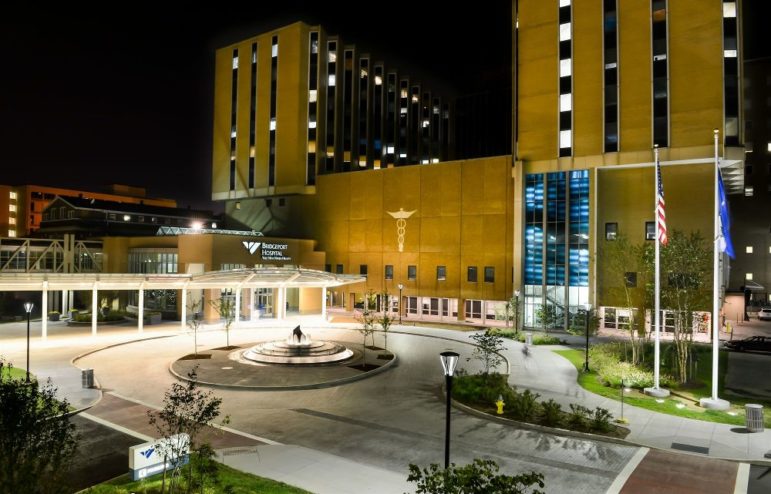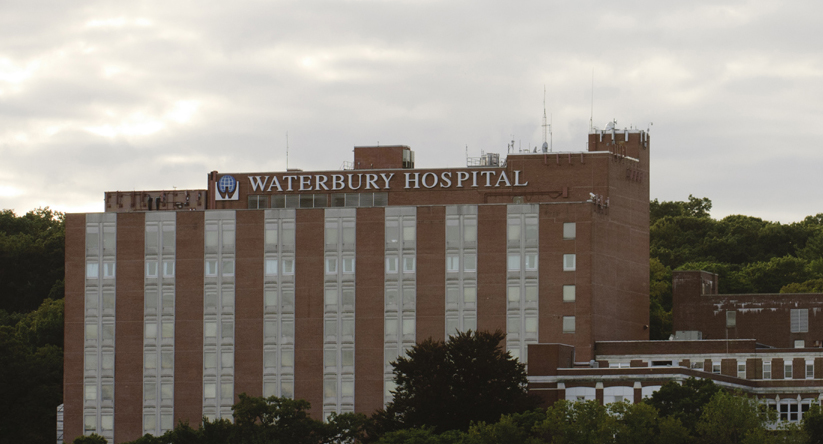Most Connecticut hospitals will lose a percentage of their Medicare reimbursement payments over the next year as penalties for having high rates of readmitted patients, according to new data from the Centers for Medicare and Medicaid Services (CMS).
Statewide, 26 of the 29 hospitals evaluated – 90 percent – will have their reimbursements reduced, by varying amounts, in the 2020 fiscal year that began Oct. 1, according to a Kaiser Health News analysis of data from CMS.
CMS began in the 2013 fiscal year to penalize hospitals that have high rates of patients who are readmitted within one month of being discharged. The penalties were enacted as part of the Affordable Care Act, intended to encourage better health care delivery. Nationwide, 2,583 hospitals will be penalized this year, according to Kaiser Health News.

CMS penalized Bridgeport Hospital 2.66 percent, the highest penalty among CT hospitals.
To help reduce the rate of readmissions, the Connecticut Hospital Association will be working with hospitals to partner with community-based organizations to address social determinants of health including housing, transportation, food insecurity and access to medical providers, said Mary Cooper, chief quality officer and senior vice president for clinical affairs at CHA.
“It’s not just about what happens at the hospital,” said Cooper.
In Connecticut, no hospital received the maximum penalty of a 3 percent reduction in reimbursements, but several will see payments reduced by more than 2 percent.
They are: Bridgeport Hospital with a 2.66 percent penalty, Waterbury Hospital at 2.44 percent, Manchester Memorial Hospital at 2.38 percent; and Bristol Hospital at 2.23 percent. Each of those hospitals were penalized in the 2019 fiscal year as well and, in each case, this year’s penalty is greater.
Medicare levied a 0.78 percent penalty on Yale New Haven Hospital and a 0.50 percent penalty on Hartford Hospital. Both penalties were lower than the previous year, St. Francis Hospital and Medical Center’s penalty was slightly higher at 0.39 percent.
Sharon Hospital has the lowest penalty, at 0.02 percent, followed by William W. Backus Hospital in Norwich and Windham Community Memorial Hospital & Hatch Hospital, which each will be penalized 0.03 percent.
Three hospitals in the state weren’t penalized at all: Stamford Hospital, Hebrew Home and Hospital Inc. in West Hartford, and Masonicare Health Center in Wallingford. Stamford Hospital and Hebrew Home and Hospital had no penalties last year as well.

Waterbury Rep-Am Photo.
Waterbury Hospital’s penalty is 2.44 percent.
Some hospitals are making strides in reducing readmissions, but doing so is a complex challenge, said Lisa Freeman, executive director of the Connecticut Center for Patient Safety. And more needs to be done, she added.
“Readmissions are a huge problem but, at the same time, it’s not a problem that falls solely on one entity’s shoulders,” said Freeman. “It’s a shared burden. The solution is a hard one.”
In launching the new hospital-community partnerships, Cooper said all Connecticut hospitals have committed to a new technology-based program that will make it easier for them to refer patients to community-based resources upon discharge, and then receive reports back from those resources about how patients fared, she said.
The program will begin rolling out – not merely within hospitals, but within communities – in three areas of the state this fall, and is expected to be implemented statewide by 2021, Cooper said.
Hospitals have an obligation to the communities they serve and should learn as much as they can about patients’ living conditions and social determinants if they aim to reduce readmissions long-term, Freeman said.
“I don’t think it’s fair to necessarily pick on particular hospitals,” she added. “We really, really have to all work together. [In some cases] we’re not going to get patients out of that cycle [of readmissions] unless we get them out of their environment.”
CMS’ reimbursement penalties alone aren’t significantly reducing the number of readmissions, Cooper noted, but a more community-based approach could.
“Given the number of hospitals that are penalized across the country, and given the lack of movement in the metrics of readmission, we have to look for other strategies,” she said, noting all hospitals want to reduce readmissions. “It’s on everybody’s radar. Everybody is working on it across the board.”

Register-Citizen Photo.
Sharon Hospital received the lowest penalty at 0.02 percent.
“The good thing of this whole program is that it’s caused folks in the industry to look at this whole issue differently. It’s caused them to be a little creative – for the most part, in good ways,” Freeman said. “I think the shift is occurring very, very slowly. We have to start looking at this as a human problem, not a dollar and cents problem, and not a numbers problem.”
Medicare exempts some hospitals from the penalty program, including children’s hospitals, psychiatric hospitals and veterans’ hospitals. Nationwide, 2,142 hospitals were exempt this year.
In Connecticut, exempted hospitals are: Connecticut Children’s Medical Center in Hartford, Connecticut Valley Hospital in Middletown, Natchaug Hospital in Mansfield, Connecticut Mental Health Center in New Haven, Southwest Connecticut Mental Health in Bridgeport, Silver Hill Hospital Inc. in New Canaan, the Connecticut Hospice Inc. in Branford, and Albert J. Solnit Children’s Center in Middletown.
View the hospital penalties provided by Kaiser Health News here.